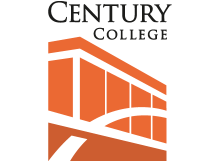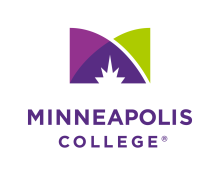Degree programs
History BA
The study of history helps students to develop skills such as reading comprehension, analysis, cross-cultural comparison and written argumentation that are useful in a range of careers and avocations. The practice of law, political activity, policy studies, library science, and museum work are careers that commonly follow from a collegiate study of history. Learn more…
About Transfer Pathways
Transfer Pathways can help you earn a bachelor’s degree without losing credits or taking extra courses. Transfer Pathways are designed for you to complete a 60 credit associate’s degree at a Minnesota State college, then transfer to Metropolitan State University and complete the final 60 credits to earn a bachelor’s degree.
Working closely with your academic advisor at both the community college and Metro State will ensure you select the correct courses in the right sequence in order to graduate in a timely manner.
About Metro State
- Is a fully accredited, comprehensive university, a member of the Minnesota State higher education system, and offer bachelor’s, master’s, and doctoral degrees in more than 60 programs.
- Is unique as over 87% of our students are transfer students who started their academic journey elsewhere.
- Offers evening, online and hybrid course options, as well as day classes to better fit working and caregiving adult schedules.
Once admitted, contact your Metro State academic advisor early in your program to get the most out of your education, such as completing two majors, adding a minor related to your career goals, or incorporating prerequisites required for graduate school.
Nearing completion of your associate’s degree?
We encourage you to take the next steps today in learning more about what Metropolitan State can offer you and how to enroll, Learn more or visit campus.
Metro State Curriculum
Courses and requirements in addition to eligibility criteria some programs have are found on each program’s page. A grade of C- or higher is required for major courses, including transfer coursework.
A sample plan is provided below for the remaining 60 credits of coursework required at Metro State after completion of the corresponding Transfer Pathway degree. Use your Degree Audit to review and confirm your remaining requirements at Metro State. Part-time options are also available.
Graduation/Degree requirements, course list for General Education, Upper Division Liberal Studies (LS), and Racial Issue Graduation Requirements (RIGR) are available to view on the Academic and graduation requirements page.
Notes: Recommend to select MnTC courses to satisfy two goal areas if needed
Upper Division Liberal Studies (LS) = 8 upper-division credits required
Racial Issue Graduation Requirement (RIGR)= 3 credits required
History BA full-time sample plan
Semester 1: 16 credits
| Course No. | Course Name | Credits |
|---|---|---|
| HIST 301 | Historical Interpretation | 4 |
| Upper-division history course (300+) in non-U.S. history | 4 | |
| General Electives | 8 |
Semester 2: 16 credits
| Course No. | Course Name | Credits |
|---|---|---|
| Upper-division history course (300+) in non-U.S. history | 4 | |
| Upper-division history course (300+) in women’s/gender history | 4 | |
| General Electives | 8 |
Semester 3: 16 credits
| Course No. | Course Name | Credits |
|---|---|---|
| HIST 401 | Topics Proseminar | 4 |
| Upper-division history course (300+) in elective history (any geographical area or field) | 4 | |
| General Electives | 8 |
Semester 4: 12 credits
| Course No. | Course Name | Credits |
|---|---|---|
| HIST 490 | Historian as Investigator: Historical Research | 4 |
| Upper-division history course (300+) in elective history (any geographical area or field) | 4 | |
| General Electives | 4 |
Note: Students must satisfy the Liberal Studies (LS; 8 upper-division credits), the Racial Issues Graduation Requirement (RIGR), and the 40 upper division credit requirement when planning their schedules.












